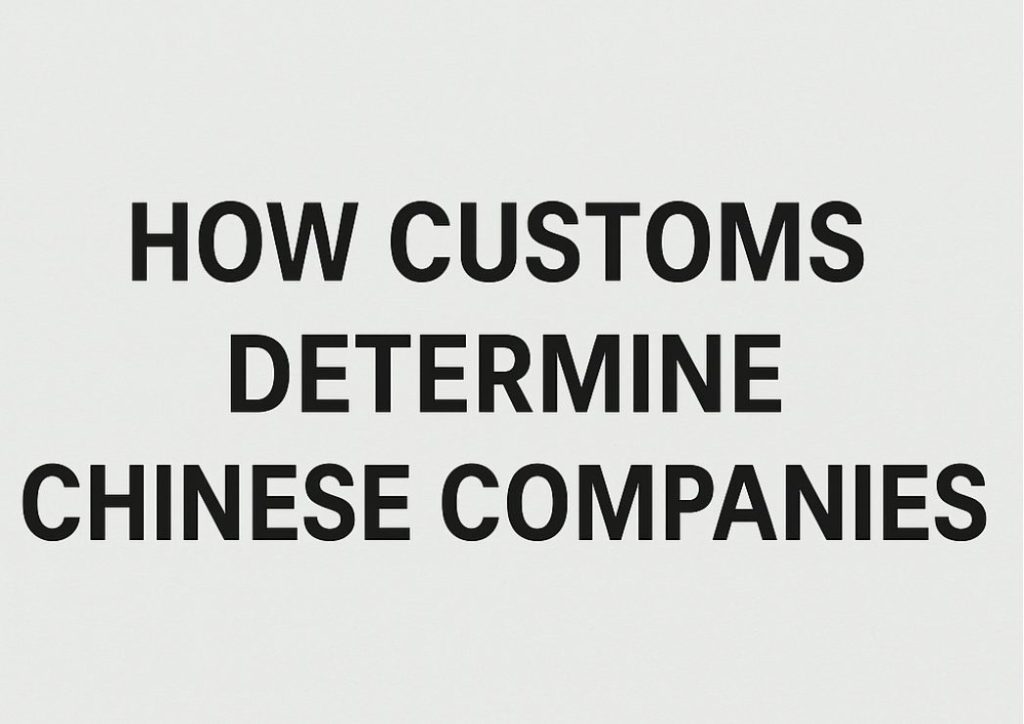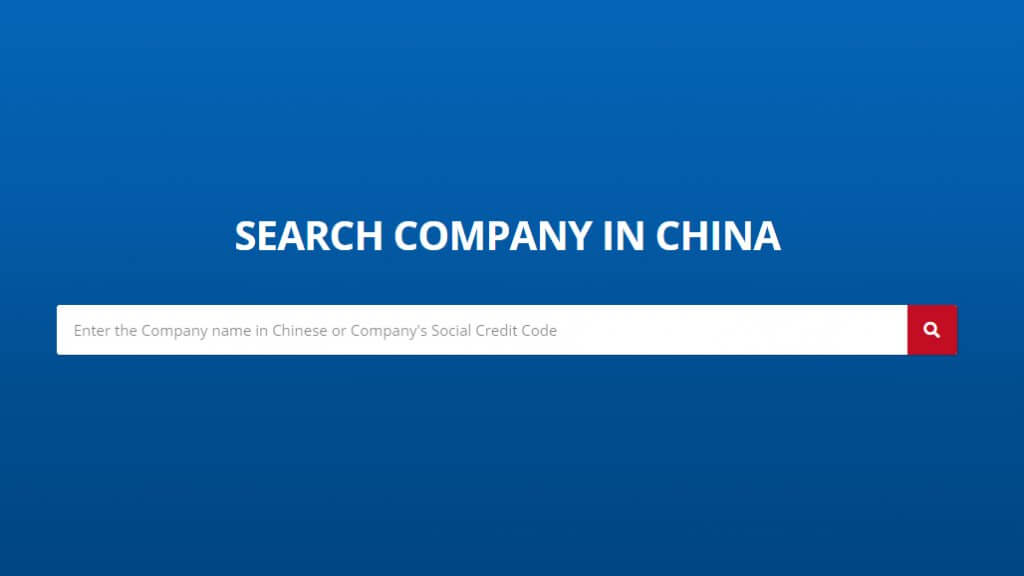Contents
Introduction:
In today’s era of globalization, China has become the largest exporter in the world. Millions of enterprises ship goods across borders every day through e-commerce platforms, traditional foreign trade, and international logistics. Yet a seemingly minor detail has repeatedly caused delays, losses, and even disputes: how customs determine Chinese Companies.
For many businesses, a name is just a label. But in international trade, it directly affects customs clearance, payment, settlement, and legal compliance. In recent years, more and more Chinese enterprises have reported that their goods were held at foreign customs or their banks refused to release payment because the English company name on invoices, bills of lading, or letters of credit (L/C) did not match other documentation.
The root cause is simple: Chinese companies do not have an “official English name.” While Chinese law only recognizes Chinese characters as the legal name, foreign customs and banks often demand a clear and consistent English name. As a result, The Risks of Chinese Company’s English Name have become a critical issue every exporter must face.
I. Customs Determine Chinese Companies: Only the Chinese Name Is Official
In China, company names are registered with the State Administration for Market Regulation (SAMR) and its local branches. According to the Administrative Measures on Enterprise Names, all names must be registered using standard Chinese characters.
Each enterprise is assigned an 18-digit Unified Social Credit Code (USCC), which functions as the sole legal identifier in business registration, taxation, customs, and legal proceedings. The USCC is the Chinese equivalent of a U.S. EIN or an EU VAT number.
This means:
- Under Chinese law, there is no such thing as an “official English company name.”
- Companies may use different English names in marketing or trade, but none of them are part of the official registration.
- The only legally valid identifiers are the Chinese legal name and the USCC.
Therefore, when foreign customs or banks request a “company English name,” Chinese companies are placed in a dilemma: legally, it does not exist, but practically, it is unavoidable.
II. What Do Foreign Customs Actually See?
Many Chinese enterprises mistakenly believe that foreign customs can directly access their Chinese business license. In fact, foreign customs authorities rely mainly on trade and shipping documents.
1. Export Declaration (Chinese Customs)
- Export declarations in China must include the Chinese company name and USCC.
- The Chinese customs system does not recognize English names.
- Once export clearance is granted domestically, the company has fulfilled its local compliance.
2. Shipping and Trade Documents (Relied on by Foreign Customs)
Foreign customs authorities rely on the following documents to identify exporters:
- Bill of Lading (B/L): Issued by the carrier, it names the Shipper and Consignee. These must be in English or the local language.
- Commercial Invoice: Issued by the exporter, listing the seller, buyer, and amount, with the seller’s name in English.
- Packing List: Detailing goods, weight, and packaging, typically using English.
- Certificate of Origin (CO): Certifying the country of origin, often including the exporter’s English name.
In other words, foreign customs do not see the Chinese business license or Chinese company name. They only see the English name written on shipping and trade documents.
3. Banks and Letters of Credit (L/C)
When trade is settled by letter of credit:
- The beneficiary name on the L/C must exactly match the names on the invoice, packing list, and bill of lading.
- If there are any discrepancies, the bank will treat them as discrepancies (“discrepant documents”) and refuse payment.
- Since banking systems only process Latin characters, exporters must provide a consistent English name.
This is why Chinese companies are forced to choose one English name for trade documents, even though there is no official registration.
III. How Customs Determine Chinese Companies?
1. Countries That Allow Clearance
- Some customs or banking systems allow input of an “Exporter Code” or “Company Registration Number.”
- When Chinese companies provide the USCC, these authorities accept it as the unique identifier.
- Even if the English name varies slightly, as long as the USCC is consistent, clearance is granted.
Examples include: the U.S. Customs and Border Protection (CBP) and certain ASEAN countries.
2. Countries That Block Shipments
- Many developing countries do not understand or accept the USCC system.
- Their customs or banks only compare the English company name across documents.
- Even small spelling differences (e.g., “Limited” vs. “Ltd.”) can cause rejection.
For example, banks in Pakistan often insist that the English name must match the L/C letter by letter.
3. The Root Cause
- Countries that clear shipments recognize the USCC or understand that Chinese companies have no official English names.
- Countries that block shipments rely solely on the English name on documents, rejecting any variation.
This explains why The Risks of Chinese Company’s English Name are not universal but vary widely depending on the destination country.
IV. Three Common Problems Chinese Companies Face
1. Conflict Between Translation Names and Declared Names
Third-party databases and platforms often generate an English Translation Name automatically. However, the company itself may use a different English trade name on its invoices and L/C. Foreign banks and customs see these as inconsistencies, triggering suspicion or rejection.
2. Strict L/C Requirements for Consistency
Although UCP 600 and ISBP 745 do not legally require names to be in one language, banking practice enforces absolute consistency. Even a difference between “Company Limited” and “Co., Ltd.” may be treated as a discrepancy.
3. Misunderstanding by Foreign Customs
Many customs officers do not realize that Chinese companies legally have no English name. They assume that the English name on a bill of lading is the company’s official registered name. When discrepancies appear, they interpret them as fraudulent declarations.
V. Case Studies
Case 1: Pakistani Bank Refuses to Issue L/C
A Fujian-based exporter used the English name “Contemporary Nebula Technology Energy Co., Ltd.” on its letter of credit. However, third-party data showed a translation as “Fujian Times Nebula Technology Co., Ltd.” The Pakistani bank compared the two and refused to issue the L/C, causing costly delays.
Case 2: U.S. Customs Clears Shipment Smoothly
A Zhejiang exporter used “ABC Solar Technology Co., Ltd.” on invoices, while some databases listed “ABC Photovoltaic Technology Co., Ltd.” U.S. Customs required the exporter’s USCC, verified the match, and allowed clearance without issue.
Case 3: Frequent Rejections in the Middle East
In certain Middle Eastern countries, banks rejected payments under L/Cs because of minor name discrepancies, such as “Group” vs. “Grp.”, treating them as non-conforming documents.
These examples show that The Risks of Chinese Company’s English Name are systemic, not isolated.
VI. Customs Determine Chinese Companies in Global Trade: Practical Recommendations for Exporters
1. Standardize an English Trade Name
- Decide on one consistent English name for all international trade.
- Use it across invoices, bills of lading, contracts, and L/C applications.
- Avoid using multiple English names in different contexts.
2. Always Include the USCC
- On all documents, list both the Chinese legal name and the USCC.
- Make clear that the USCC is the unique legal identifier.
- Attach a copy of the business license when needed to reassure banks or customs.
3. Provide a “Name Correspondence Letter”
Exporters should prepare a bilingual statement confirming:
- The official Chinese name;
- The USCC;
- The standardized English trade name used internationally;
- That the English name is a declared alias, not a registered name.
4. Leverage Platform Support
How do customs determine Chinese Companies in the world? The Platforms, like company search engines, should:
- Clearly label English Translation Name as “for reference only”;
- Allow companies to submit their Declared English Alias;
- Verify aliases with supporting documents (e.g., bank letters, customs certificates), marking them as Verified English Alias.
This creates transparency and reduces misinterpretation.
VII. The Role of Industry Platforms: Education and Transparency
Platforms such as registrationchina.com have a responsibility to clarify these risks. They should:
- Explicitly state that “English names are translations for reference only. The Chinese name + USCC is legally binding.”
- Offer companies a way to declare and verify their English alias.
- Add disclaimers to reports and data exports.
- Publish educational articles about The Risks of Chinese Company’s English Name to raise awareness among foreign banks and customs authorities.
How Customs Determine Chinese Companies? By doing so, platforms not only protect Chinese exporters but also prevent unnecessary disputes.
Tips. Template: Name Correspondence Letter
English Version
Our company’s legal name is: ______ (in Chinese), with Unified Social Credit Code (USCC): ______.
For international trade, we use the following English trade name: ______.
Please note that this English name is a declared alias, not an official registered name. The USCC shall serve as the unique identifier.
Conclusion:
To summarize, when customs authorities determine the English name of a Chinese company, they rely on shipping and trade documents—not on any official registration. Since Chinese law provides no official English name, The Risks of Chinese Company’s English Name will persist in cross-border trade.
How Customs Determine Chinese Companies? The solutions are clear:
- Use one consistent English name across all documents;
- Anchor identity with the USCC, which is unique and verifiable;
- Provide explanatory letters and platform statements to bridge the gap between Chinese legal practice and international trade requirements.
Only by following these steps can Chinese exporters reduce risks, ensure smooth customs clearance, and secure timely payments. Addressing The Risks of Chinese Company’s English Name is not just about compliance; it is about building confidence in global markets and ensuring the stability of China’s foreign trade.




